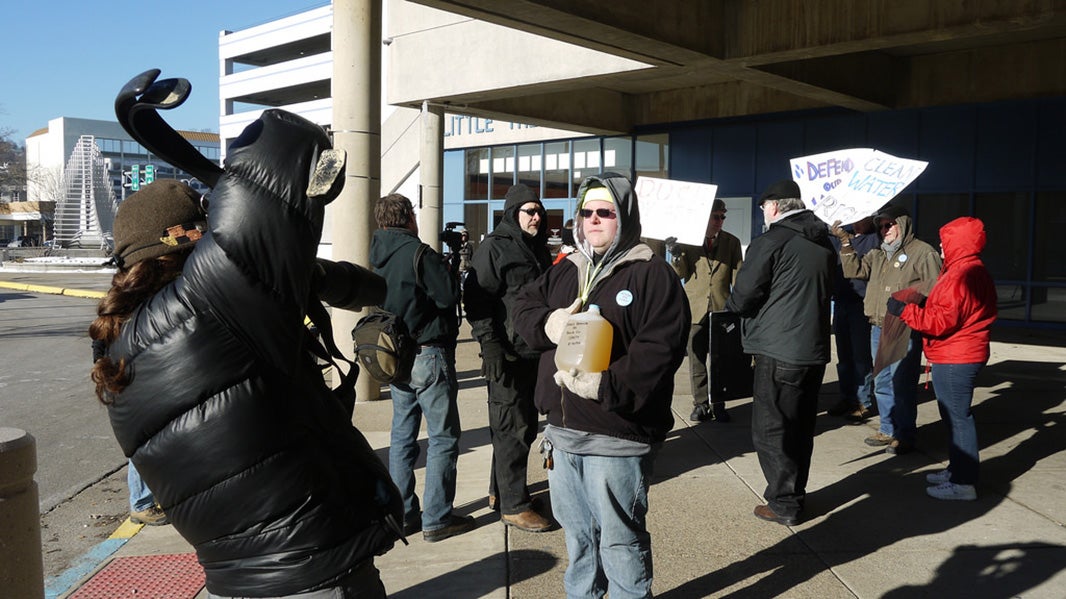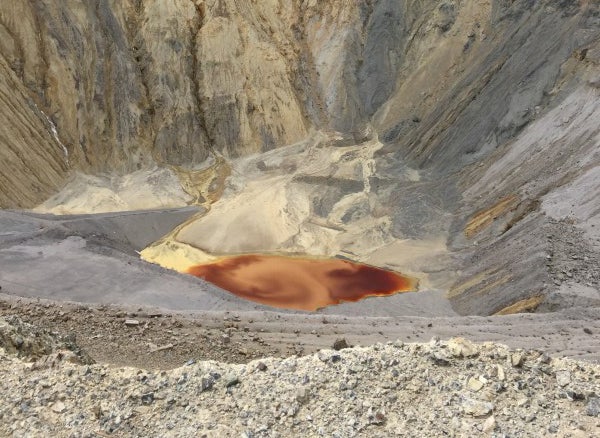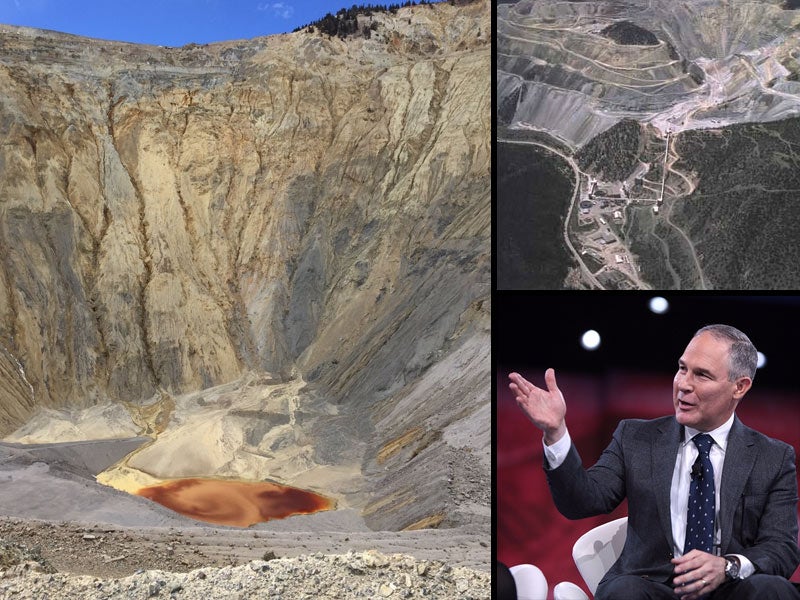Suing EPA for Allowing Polluters to Pass the Bill for Their Spills to the Public
These rules would make sure polluters pay to clean up their own messes, instead of skipping town and leaving the cost to the public. Because the Superfund tax has expired, the funds available for cleaning up toxic sites has been dramatically reduced. It is thus critical that financial assurance rules guarantee that funds are available for cleanup.
Clients
Regional Office / Program
Case Overview
Earthjustice on behalf of Idaho Conservation League, Earthworks, Sierra Club, Amigos Bravos, Great Basin Resource Watch, and Communities for a Better Environment filed suit against the Environmental Protection Agency for failing to issue key rules mandated by the Superfund Act (the Comprehensive Environmental Response, Compensation and Liability Act, or CERCLA).
The rules that EPA has failed to issue would help prevent major spills of hazardous substances. For example, the Freedom Industries chemical spill in West Virginia that left hundreds of thousands of people without safe drinking water due to leaks from aging, corroded tanks could have been avoided if EPA had put these rules in place long ago, as the law requires.
These rules would also make sure polluters pay to clean up their own messes, instead of skipping town and leaving the cost to the public. For example, cleanup efforts at the Bunker Hill Superfund site in Idaho have been ongoing for decades, and the cleanup has been repeatedly delayed because of lack of funding. The primary responsible party for the site, the Asarco mining company, declared bankruptcy and left the taxpayers to foot most of the cleanup bill, which is estimated to be around $2 billion. The delayed cleanup means that nearby communities are exposed to high levels of lead and other pollutants, and the Center for Disease Control has measured lead blood levels in children that are above the acceptable maximum.
The groups’ lawsuit charges that a 30-year delay in issuing legally required rules to ensure that parties responsible for hazardous substance pollution bear the cost of cleanup is an unreasonable delay.
For 30 years, the Superfund law has required the EPA to develop rules ensuring that industries that handle hazardous substances secure insurance or other financial means to clean up any messes or accidents that release toxic chemicals. These rules are critical to ensuring that any hazardous spills are cleaned up as quickly and thoroughly as possible, and without drawing on public funds. These rules also play an important role in preventing hazardous pollution, because unsafe practices and equipment lead to higher insurance costs—so these risky industries have an incentive to adopt safer methods. But instead, since EPA has failed—over 30 years—to issue these rules as required by law, polluters frequently leave hazardous spills untreated for years and leave taxpayers to cover the high cost of cleanup.
In 2009, as a result of an earlier lawsuit by Earthjustice, the EPA took steps toward setting these rules by identifying those industries that present the highest risk of dangerous and expensive hazardous releases—namely, hardrock mining, chemical manufacturing, petroleum and coal products manufacturing, and electric power generation, transmission, and distribution (coal-fired power plants)—but EPA still hasn’t put any rules in place to make sure these dirty industries clean up their hazardous spills. Most facilities are not subject to any requirement to provide evidence of financial ability to clean up any spill, accidental release or other contamination resulting from the generation or handling of hazardous substances.
EPA has estimated that one in four Americans lives within three miles of a hazardous waste site. The cost of cleaning up even a single site is high—for example, according to a 2005 report, it will cost $140 million, on average, to clean up each of the 142 largest Superfund sites, for a total of almost $20 billion. The parties responsible for these messes often evade costs: Cleanups at 60 so-called “mega-sites” are already being funded either wholly or partly by public funds. Because the Superfund tax expired 15 years ago, the funds available for cleaning up toxic sites has been dramatically reduced. It is thus critical that financial assurance rules guarantee that funds are available for cleanup.

Case Updates
Case page created on August 11, 2014.

